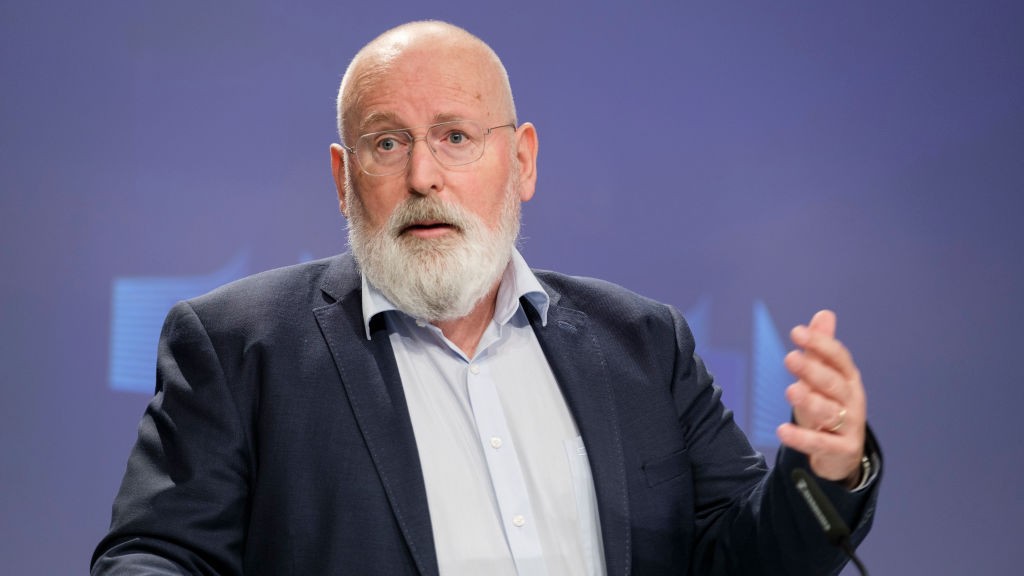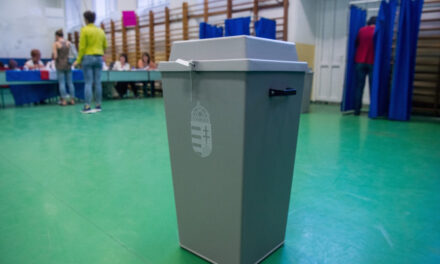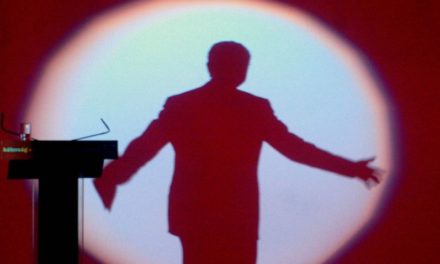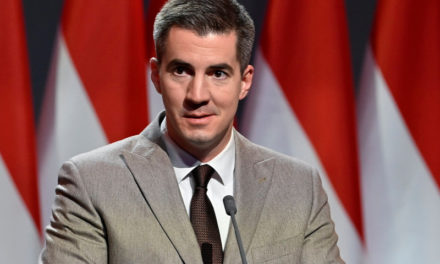Rising energy prices and supply difficulties are not primarily a problem because they increase dissatisfaction and thus reduce support for the cause of climate protection, but because they can push millions of families into a vulnerable situation by autumn. In this situation, Europeans do not expect political leaders to "cool their tempers", but to solve, or at least alleviate, the problems that they partly caused - emphasized Olivér Hortay, head of Századvég's energy business.
Frans Timmermans, the Brussels commissioner responsible for the green transition, fears a "popular uprising"
According to his statement, if the Europeans won't be able to heat it, it could even lead to a riot, so his main goal going forward will be to reassure EU citizens that they don't have to face a heating crisis. He also added that it is necessary to go back to coal burning, the temporary use of which does not harm the fulfillment of climate protection goals, but without it, he would not be able to cool the tempers in some member states convincingly enough - Olivér Hortay, head of Századvég's energy business, drew attention to Timmermans' words on his social media page. .
According to the expert, the words of the Dutch politician are outrageous in many ways, because he has an extraordinary responsibility in the current situation.
In recent months, Timmermans and the European Commission have pushed the strongest for the introduction of sanctions affecting energy transport. Moreover, all this was done without examining its reality and consequences. , Timmermans and his energy commissioner colleague, Kadri Simson, have been claiming that the Europeans support the embargo, even though research proves the opposite, Olivér Hortay reminded.
The business manager of Századvég also touched on the fact that the structural problems of the European energy market - which contributed to the energy crisis even before the war - were largely due to Timmermans' previous, failed policy efforts (for example, the reduction of traditional internal capacities, the termination of long-term contracts, or the lowering of energy prices the consequences of artificially increasing carbon quotas). Brussels maintains these aspirations, despite the energy crisis and the outbreak of war, which further aggravate the situation.
Timmermans' statements and actions showed that
the commissioner would blame the consequences of the unfolding serious situation on the households and this (rightly) increased the indignation of the Europeans. In April, for example, he suggested that Europeans heat less, ride bicycles and air out clothes instead of washing, the expert wrote. According to him, Timmermans' social insensitivity is clearly demonstrated by the fact that he is not concerned about the masses of households becoming energy poor, but about the "rebellion" with political consequences. Moreover, this would be remedied by further manipulation of public opinion.
- Rising energy prices and supply difficulties are not primarily a problem because they increase dissatisfaction and thus reduce support for the cause of climate protection, but because they can push millions of families into a vulnerable situation by autumn. In this situation, the Europeans do not expect the political leaders to "cool their tempers", but to solve, or at least alleviate, the problems that were partly caused by them, Olivér Hortay emphasized.
Finally, the expert called it amazing that Timmermans continues to look down on Europeans. – Everyone is aware that increasing coal burning hinders climate protection. At the same time, the start-up of coal-fired power plants may be justified by avoiding a social crisis, but it is certainly not because Timmermans can cool tempers more convincingly with it. Moreover, the politician tries in vain to convince Europeans that there will be no heating crisis if they feel it first hand. Why can't we honestly talk about the seriousness of the current situation and the fact that its management requires decisions that will have negative consequences in other areas? - finally asked the question of Századvég's energy business manager.
Source: Hungarian Nation
Featured image: Thierry Monasse/Getty Images












